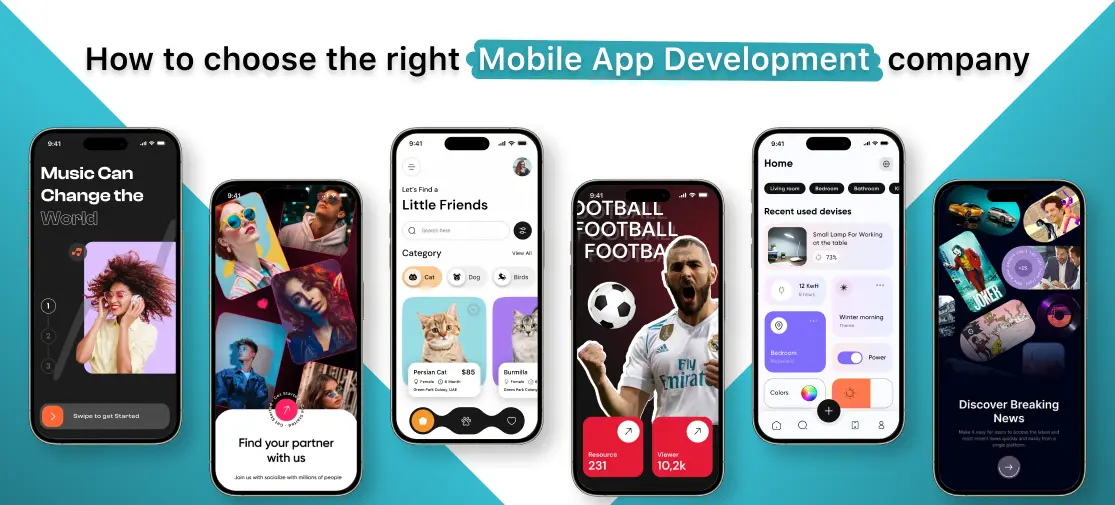In today's fast-paced digital world, Mobile app development has become an integral part of modern business operations. The use of mobile applications is no longer restricted to entertainment or social media platforms; rather, it has become an essential tool for businesses to improve their operational efficiency and enhance their customer experience.
In this blog, we will discuss the evolution of mobile app development and its impact on businesses.
The evolution of mobile app development
The evolution of mobile app development can be divided into three stages:
Native app development
Native app development refers to the creation of applications that are specifically designed for a particular operating system, such as Android or iOS. Native apps are developed using programming languages like Java or Kotlin for Android and Swift or Objective-C for iOS.
Native app development was the first stage of mobile app development, and it dominated the industry for several years. It provided a more seamless user experience and allowed developers to create high-performance applications with greater functionality.
However, native app development is expensive and time-consuming, as developers have to build separate applications for each platform.
Hybrid app development
Hybrid app development is the next stage in the evolution of mobile app development. Hybrid apps are developed using web technologies like HTML, CSS, and JavaScript, which are wrapped in a native shell to allow them to be installed on a mobile device.
Hybrid app development offers several advantages over native app development. It allows developers to create applications that can run on multiple platforms, thus reducing development costs and time-to-market. Hybrid apps also provide a seamless user experience and can access device-specific features like camera and GPS.
Progressive web apps (PWA)
Progressive Web Apps are the latest stage in the evolution of mobile app development. PWAs are essentially websites that are designed to look and feel like native apps. They offer the same functionality as native apps but are accessed through a web browser rather than being installed on a mobile device.
PWAs are highly responsive, can work offline, and can be installed directly from a website without the need for an app store. They also provide a better user experience and can be accessed from any device with a web browser.
About mobile application development
Mobile app development has come a long way since the first mobile application was developed in 1993. With the advent of smartphones, mobile apps have become a ubiquitous part of our daily lives. Mobile app development has undergone a significant evolution, from simple applications that provided basic functionality to complex, feature-rich applications that offer a multitude of services. In this blog, we will explore the evolution of mobile app development and its impact on business.
Early days of mobile app development
In the early days of mobile app development, applications were primarily built for feature phones, which had limited processing power and memory. The applications were simple and offered limited functionality such as calendars, calculators, and basic games. These applications were developed using proprietary tools and were platform-specific, which meant that they could only be used on specific devices.
The introduction of smartphones
The introduction of smartphones in the late 2000s revolutionized the mobile app development industry. Smartphones offered powerful processors, larger screens, and better memory, which enabled developers to create more complex and feature-rich applications. Smartphones also introduced touchscreens, which allowed developers to create more interactive applications that could be operated using gestures.
Cross-platform mobile app development
Cross-platform mobile app development has become increasingly popular in recent years. Cross-platform development allows developers to create applications that can run on multiple platforms, such as Android and iOS, using a single codebase. This approach significantly reduces the time and cost of app development and allows businesses to reach a wider audience.
Cloud-based mobile app development
Cloud-based mobile app development is another trend that has emerged in recent years. Cloud-based development allows developers to build applications that are hosted in the cloud, which means that they can be accessed from anywhere and on any device. Cloud-based development also allows for real-time collaboration between developers, which significantly improves the speed and efficiency of the development process.
Impact on business
The evolution of mobile app development has had a significant impact on businesses. Mobile applications have become an essential part of modern-day business operations, and they have helped businesses to streamline their processes, improve their customer experience, and increase their revenue.
Improved customer experience
Mobile applications have revolutionized the way businesses interact with their customers. Applications allow businesses to provide a more personalized and convenient experience for their customers, which has led to increased customer satisfaction and loyalty. Applications also allow businesses to collect valuable data on their customers, which can be used to improve their products and services.
Increased revenue
Mobile applications have also helped businesses to increase their revenue. Applications allow businesses to reach a wider audience and offer new services and products to their customers. Applications also provide businesses with a new revenue stream, as they can be monetized through in-app purchases and advertisements.
Streamlined processes
Mobile applications have helped businesses to streamline their processes and improve their efficiency. Applications can automate repetitive tasks, such as data entry and inventory management, which saves time and reduces the risk of errors. Applications also provide businesses with real-time data, which allows them to make informed decisions and respond quickly to changing market conditions.
Impact of mobile app development on business
Mobile app development has had a significant impact on businesses of all sizes and industries. Here are some of the ways in which mobile apps have transformed the business landscape:
Improved customer experience
Mobile apps have revolutionized the way businesses interact with their customers. They provide a more personalized and convenient experience, allowing customers to access information, products, and services from anywhere, at any time.
Mobile apps also provide businesses with valuable insights into their customers' behavior, preferences, and needs, which can be used to improve products and services and build stronger relationships with customers.
Increased efficiency
Mobile apps have also improved business operations by increasing efficiency and productivity. They allow businesses to automate tasks, streamline processes, and reduce manual labor, which can save time and resources.
Mobile apps can also provide real-time data and analytics, which can be used to make informed decisions and improve business strategies.
Competitive advantage
Mobile apps can give businesses a competitive advantage by providing a unique value proposition to customers. They can differentiate a business from its competitors by offering features and services that are not available elsewhere.
Mobile apps can also help businesses to expand their reach and increase brand awareness, which can attract new customers and increase revenue.
New revenue streams
Mobile apps can also create new revenue streams for businesses. They can provide an additional channel for sales and marketing, allowing businesses to reach customers who prefer mobile devices over desktop computers.
Mobile apps can also be monetized through in-app purchases, subscriptions, and advertising, which can provide a steady stream of revenue.
Conclusion
In conclusion, the evolution of mobile app development has had a profound impact on modern business operations. From the early days of native app development to the latest innovations in PWAs, mobile apps have revolutionized the way businesses interact with their customers, streamline their operations, and generate revenue.
Mobile apps have become an essential tool for businesses of all sizes and industries, offering a unique value proposition, improving customer experience, and providing new revenue streams. As the mobile app development industry continues to evolve, businesses will need to adapt and innovate to stay ahead of the competition and meet the ever-changing needs of their customers.




